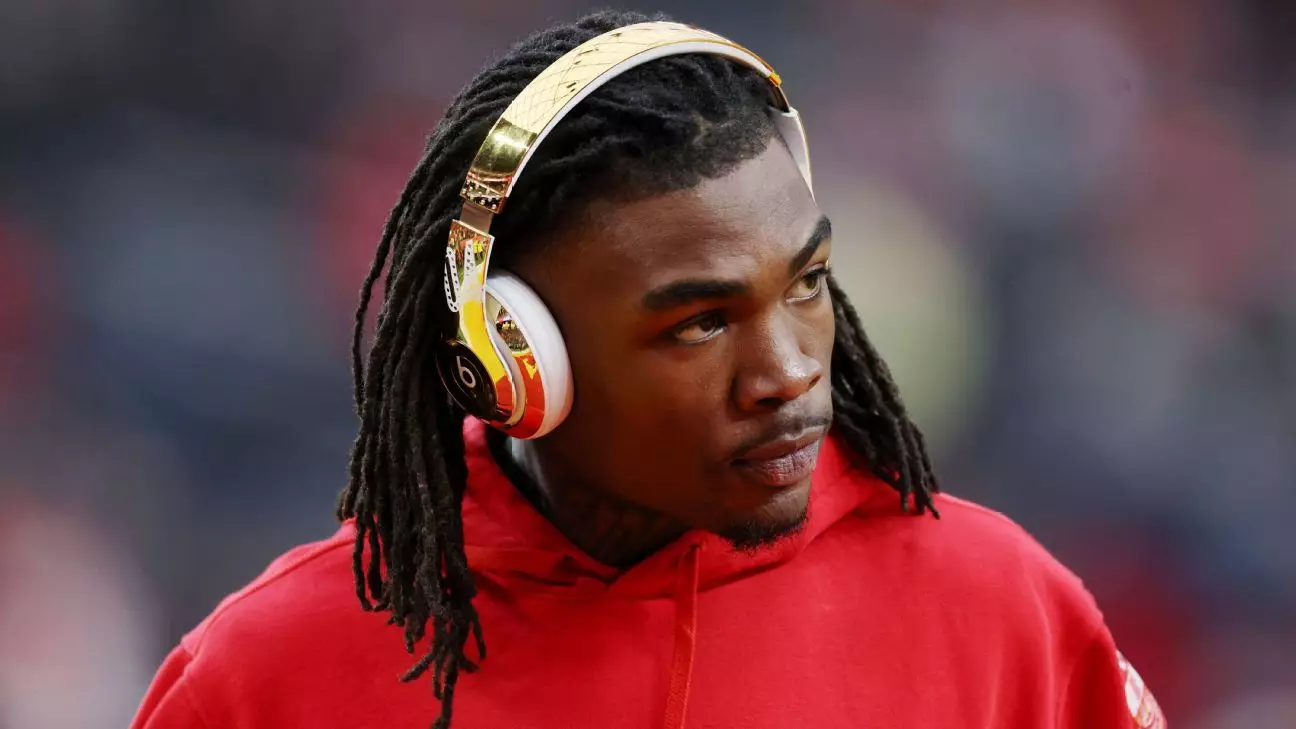In recent headlines, Rashee Rice’s legal troubles cast a glaring spotlight on the dangerous combination of fame, privilege, and irresponsibility. The Kansas City Chiefs wide receiver, despite his promising talent, was convicted of driving at nearly 120 mph in a Lamborghini, resulting in a multi-car crash that injured innocent victims. His subsequent plea, jail time, and probation reveal a troubling pattern: when young athletes attain celebrity status, the line between personal freedom and social responsibility becomes dangerously blurred. It’s not merely a matter of individual mistakes but a reflection of a broader societal tendency to excuse or overlook reckless behavior when it involves powerful figures.
What stands out is the fact that Rice’s fine, probation, and deferred adjudication serve as a slap on the wrist—an insufficient punishment considering the potential for catastrophic harm. The case underscores a systemic issue where high-profile individuals often escape severe consequences, thus fostering a culture of impunity. Are we inadvertently enabling reckless conduct by allowing flashy lifestyles to overshadow accountability? Or are we simply tolerating a double standard where athletes and celebrities are held to different moral and legal standards? The dichotomy raises urgent questions about societal values and the true meaning of responsibility.
The Illusion of Privilege and the Need for Genuine Accountability
Rice’s statement of remorse, expressing profound regret for his actions, sounds sincere but ultimately mitigates the severity of his criminal behavior. His acknowledgment of the damages caused is meaningful, yet it feels hollow without a corresponding push for systemic change in how society punishes such misconduct. Paying restitution and serving a short jail term may be viewed as sufficient for a football star, but they pale in comparison to the potential harm he could have caused or the message this sends to impressionable fans and fellow athletes.
Furthermore, the NFL’s deliberation—slow and cautious—reflects a pattern inside professional sports that often prioritizes avoiding public relations crises over enforcing firm disciplinary measures. This response subtly endorses a culture where talent can sometimes excuse or overshadow transgressions. The league’s tendency to delay sanctions until controversy erupts again worries many about unchecked privilege. It’s clear that true accountability cannot be segmented; it must be rooted in a broader societal shift that rejects any notion of special treatment based on fame.
The Cultural Implications and the Call for Ethical Maturity
The incident highlights a dangerous cultural myth that equates risk-taking, especially behind the wheel, with heroism or status. When individuals like Rice, with access to luxury and influence, display reckless disregard for safety, it fosters a harmful narrative that might seem cool or rebellious rather than dangerous. Such attitudes threaten the societal fabric by sending the message that personal conduct has little bearing on one’s reputation or career as long as talent remains evident.
Society needs to demand more than apologies and fleeting penalties; what we require is a genuine shift towards ethical maturity. Accountability should not be optional, especially for those with societal influence. Public figures should serve as exemplars of responsibility—not just in their words but in their actions and the consequences they face. Leadership, after all, involves owning up to one’s mistakes and actively working to prevent future harm—a standard Rice has yet to fully embody.
By tolerating or minimizing these incidents, society implicitly condones a dangerous mindset: that the pursuit of success and personal gratification can justify reckless, destructive behavior. This mindset not only endangers others but devalues the moral fabric that binds communities together. Now is the time for collective introspection—holding influential figures accountable is a moral imperative that reflects our true societal values. Anything less perpetuates a cycle of impunity that risks eroding the very principles of justice and responsibility.

Leave a Reply